- Home
- Heather Graham
New Year's Eve Page 2
New Year's Eve Read online
Page 2
“No one saw anything?” Jackson asked. “I saw the cups are behind the counter.”
“And there is nothing blocking anyone from getting to them. This morning . . . well, every morning we have a little staff meeting. The doors are open, just before opening time for the café. I could only figure that someone slipped in. I mean, people do come in, but customers make noise . . . they ring the little bell on the counter if they’re early.”
“Tell me about your people,” Angela said.
“Good kids, honestly! Julio, on the counter today, is a student at Georgetown. Jake—bringing your coffees right now—is the son of an old friend. He’s going to move to Hollywood to be an actor! And Liam there is a great kid. Lost his mom a few years back, but he’s still putting himself through school, too.”
Angela observed the young man coming toward her, Jake. He did seem to have the makings of an actor—he was a handsome young man with a devilish lock of dark hair that angled in a sexy slant over his forehead. He was wearing a mask that advertised a sci-fi movie. He set the coffees down in front of Angela and Jackson, nodded to Tony, and asked if they needed anything else.
Angela thanked him and assured him, no.
“These are my friends; take good care of them!” Tony said.
“Of course,” Jake said. Angela believed that, behind his mask, he was giving them a winning smile.
But then, as Corby always told her, you could see a smile in someone’s eyes.
“So, I hear you’re going to be an actor! Shakespearean?” she asked him.
She saw his brows crinkle. “Um—an anything actor! I’ve done stage work, but I really love film and video. They’re forgiving. You mess up on stage, and you ruin it for everyone. Except in rehearsals, there are no do-overs in front of a live audience.”
“True!” Angela said cheerfully. “Well, then, as they say, break a leg!”
“Thanks!”
He left them.
“I’m sure they’re all good kids, Tony. But we need last names. On everyone working today.”
Angela drew out her phone, tapping a note to herself. “Julio Garcia, Jake Appleby, and Liam Cross. And in the kitchen today I have Matty Ayers and Jean Greely.”
“Thank you,” Angela said. “Is it all right if I walk inside for a minute?” she asked.
“Of course!”
She stood and went in. Tony kept the place spotless; there was a bottle of hand sanitizer on the counter.
His people were all wearing gloves, and a notice alerted staff and customers that staff were required to change their gloves frequently.
There were a few tables inside, but they were empty. The walls were adorned with posters—mostly from Italian movies.
The counter was long—with a break in the center for staff to come and go for the preparation of the different espressos, coffees, and cappuccinos that were offered.
Julio Garcia smiled at her—she saw the smile in his eyes.
“What can I do for you?” he asked politely from behind the register.
She smiled back. She hoped he saw that she was smiling back.
“I’m all set, thank you. I’ve been here before; I was just taking another look.”
“Ah. Well, that’s free!” he said cheerfully.
She turned to look at the positioning of the tables again.
“Inside job! I don’t care how good the ‘kids’ may be.”
She almost jumped; she hadn’t realized that Josh had followed her.
“Sorry!” he said quickly.
She gave him a quick “eye smile” too and stepped a little closer to the counter.
“This is such a great place,” she told him.
“It is.”
“You like working here?”
“Sure. Tony is great. Most people are nice. Even now. And since most people are nice, you just shrug off the few jerks you meet.”
“That’s a good philosophy.”
He shrugged. “Hey, it’s life.”
“I guess it is. Anyway, thank you!”
She headed back out to the table. Kat and Will were in the office. It was going to be easier for them to research what could be found on the staff at the café.
She sent an email.
“Don’t forget social media!” Josh said.
“I never do,’ she assured him, and returned to the table.
“Excuse me, and thank you, thank you,” Tony said. “I must go in and see that Mrs. Harrison’s latte is made with sugar free vanilla and two pumps of fat-free pumpkin!”
He rose and pulled out a chair for Angela, then paused.
“The police did come by this morning. I believe they think it was a prank. They talked to everyone here.”
“And?” Angela asked.
He shook his head. “They were more worried about Bart.”
“We’ll talk to him, too,” Jackson assured him.
Angela saw the other young waiter, Liam, carrying a tray out to a table down at the end of the sidewalk.
“Liam,” she murmured.
“We had a chat,” Jackson told her.
“And?”
“He likes working here. He likes school. And . . . I got nothing.”
“Customers like him,” Josh said. “He’s polite, he’s quick. And he and the others all seem to like each other fine, too. No one accused anyone else. There’s no back-stabbing here.”
“I’m still wondering . . .” Angela murmured.
“What’s that?” Jackson asked.
“If we should divide and conquer. Time is not on our side. We’re down to nine hours before midnight.”
As if to accentuate her words, some early fireworks flashed across the sky.
“All right. I’ll go and talk to Bart Winston,” Jackson said. “Josh—”
“I’ll stay here with Angela. She can order a Danish.” Josh grinned. “And I can ‘live’ vicariously through her!”
“Funny, funny,” Angela said.
Josh grinned. “I try!”
Jackson rose and left, and Angela slipped off her mask to take a long sip of her drink. She pulled her phone from her bag and set her earphones on.
“We can talk, and you won’t look crazy!” Josh said.
“That’s the plan.”
“But you need to go in and buy a Danish,” Josh told her.
“Josh—”
“Ah, come on! You need a reason to sit here.”
“I guess I do. Okay, so you tell me. I believe it had to be an inside job, too. I think that if someone had slipped in during a meeting, they’d have been heard by someone. I haven’t met the people in the kitchen—”
“I don’t think you need to.”
“Oh?”
“They never left the kitchen. My dad got here with me right around the time the police came. Both the cooks went straight into the kitchen when they got here—others attested to that. They never left.”
“So, okay. Liam, Julio, or our handsome young actor, Jake?”
“That’s where I get stuck.”
“Me, too. I was thinking actor—the first line is Shakespeare.”
Josh leaned closer to her, though, of course, he couldn’t be heard by others.
“I’m not so sure he’s ever read Shakespeare. The guy is pretty. He intends to make it on being pretty.”
“Harsh!”
“I’ve been watching. Now, both of the others seem to be bright enough to read.”
“I’ll go buy my Danish,” Angela said. “Chat with Julio again.”
“Are we staying to six?”
“We are. We’re going to see what happens when they close.”
Jackson
Jackson noticed that there were two police cars sitting in front of the Alistair Apartments. He parked himself and walked toward the old building that housed the apartments, he noted that the dwellings had no main entry—the individual homes could be approached by the street or from behind. If he remembered his history, the building had been erected in the earl
y 1800s as offices and since then, it had been used as a school, a mental hospital, and then as an office building again before being refurbished and redesigned as an apartment and condo building.
On his way over he’d called Tony Marino, curious as to why they thought that if the threat hadn’t been directed at Bart Winston why it had been assumed it was against someone who lived in the Alistair Apartments.
Tony explained.
It was just because so many of his customers lived in the apartments.
They were the regulars.
The people most likely to be at the café every morning.
The building had been designed in the gothic style and with its repair and fresh paint, it was a beautiful structure, sporting handsome arches and walkways and even a few gargoyles strategically placed over the walkways that led to the front entry paths. Land was at a premium here, but there was still a small garden with benches in the immediate front.
Jackson thought the cherry trees in the front had been added to create an atmosphere of peace and homecoming when the building had become apartments. They’d only been open as such for a few years now, but he remembered the advertisements for the place.
Above his budget as a government employee, and he preferred the house he and Angela had recently acquired, though the proximity to the Krewe offices here would have been nice.
Anyone living here would have a decent income. More than decent. Or they’d inherited a decent income. That didn’t necessarily mean anything, he thought dryly.
Killers with a cause, crazy killers, and just those with a grudge didn’t necessarily kill someone because they were affluent. But money could breed jealousy and hatred.
He studied the building for a minute. There were security cameras that would capture anyone coming or going from the front.
As he approached Bart Winston’s apartment Jackson saw there were officers in the garden area. He waved to Officer Bill Wheatley, a friend he’d met on previous occasions.
Wheatley acknowledge him and strode toward him along the path that was shaded by the cherry trees, empty of flowers and fruit in their winter apparel, but still standing like sentinels along the path.
Wheatley was a young officer, maybe mid-twenties, and a good one, in Jackson’s estimation. He took simple assignments seriously.
“You’re here because of the napkin note?” he asked Jackson.
Jackson nodded.
“They called in the big guns on this, huh? We’ve had a few other crazy warnings,” Wheatley told him. He shrugged. “It’s New Year’s Eve. One guy warned that Jupiter was going to crash into earth. Another says that Satan is arriving at the Lincoln Memorial.” He paused and grimaced. “At least they didn’t ask me to arrest Satan. We’re leaving that to someone more experienced.”
“This may not be credible, but it’s low key enough to mean something,” Jackson said.
“A Shakespearean killer! Have you thought about a disgruntled actor?”
“Of course. But I think it’s the sentiment expressed. There’s something sad and final about the words that suggests—the way they were used—that someone is at a breaking point.”
“Half the country is at the breaking point,” Wheatley said. He gave Jackson an encouraging smile. “But there is hope out there!”
“That there is,” Jackson agreed.
“Hey, I’m hopeful this is nothing and we’re wasting our time and taxpayer money, but it’s all right. One of my buddies from the precinct is spending the holiday in the hospital—he got clocked by a drunk he was trying to help who suddenly thought the cops were aliens. This isn’t so bad!”
“Glad to hear it—and sorry for your friend.”
Wheatley pointed to the ground floor entry to Bart Winston’s apartment. “He’s in there. He’s with a friend. Grant Lockwood from 207. We are keeping watch, Special Agent in Charge of the Field, or . . . wow. I forget your title. Forgive me. No disrespect intended.”
Jackson laughed. “Not to worry. I’m going to check on our man, see if he thinks he got the cup and saucer randomly or if it was intended for him.”
Wheatley nodded. “I’m here through the witching hour with Officer Bennett. Good guy. Prank, real, whatever—we are watching. And we are capable.”
“Never doubted it,” Jackson assured him.
He headed on to the door to Bart Winston’s apartment.
The door opened before he could reach it.
Bart Winston was a tall, lean man, a dignified figure in a casual suit. He looked at Jackson anxiously. “FBI?”
“Yes, sir. Special Agent Jackson Crow.”
Winston frowned. “I hear you’re from a special unit. One that deals with weird events. I don’t think this is weird. I think it’s a direct threat.”
Jackson smiled grimly. “Well, sir, if it’s a direct threat, we need to understand why.”
“Um, come in,” Winston said. “I’ll grab my mask.”
Jackson entered the apartment. Another man had been sitting on the handsome sofa in the parlor area. He stood. He was a tall man, too, but older, with thinning salt-and-pepper hair and tired blue eyes.
“This is Grant Lockwood, Special Agent Crow. A friend—and a regular at the café. We’ve been going over and over the note wondering if they were crazy depressed words, or if . . .”
Lockwood stretched out a hand and then seemed to remember that people didn’t shake hands during the epidemic.
“I’m with Bart most mornings; we walk in together before going to work,” Lockwood said.
“And he’s a divorce attorney. He gets crazy threats now and then,” Winston explained.
“Harmless for the most part.” Lockwood shook his head. “I do my best for my clients, but we work a fair game, too. I try to see that children don’t become pawns in the proceedings. You’d be amazed at the amount of people who would hurt their kids just to get even with a spouse.”
“Not too much surprises me,” Jackson assured him. “So, among these threats—”
“I usually know who sends them and why—you know the kind of thing, ‘I worked every day for him—or her—to get through school and I deserve my share.’ Or ‘take the kids and I’ll kill you!’ I usually talk to the person. I try to bring in both parties. And I know an attorney is battling for one party, but the battle is best when both parties can come to an amicable place, especially when kids are involved.”
“But you think this might have been intended for you?” Jackson asked.
“Don’t people hate lawyers from the get-go? Don’t they call us sharks?” Lockwood asked.
“Well, those hurt—be it by an attorney or anyone else—can be resentful. That’s human,” Jackson said. “Acting on those feelings, well, that’s criminal.”
“But I’ve been trying to tell Lockwood here that I’m the one who found the napkin with the note,” Winston said.
“But no one would be after you,” Lockwood said, attempting a weak smile.
“All right. Do either of you have a beef with anyone working at the café?” Jackson asked.
They both looked at each other and shook their heads.
“I don’t think that . . . well, what would those young men have against customers?” Winston asked.
“We both tip really well!” Lockwood said.
“Worked our way through college,” Winston agreed.
“Let me see where we are now, if there is anything anyone has learned,” Jackson said.
Lockwood looked at the clock.
The afternoon was slipping away.
“Hurry, please!” Winston said.
“The police are just outside,” Jackson said. “But if you were planning anything for the night, you might want to skip it.”
“We were just going to open a bottle of champagne together,” Winston said.
“A good plan,” Jackson told him.
“You’ll come back?” Winston asked.
“Yes, but I can’t investigate sitting here, and as you said—” Jackso
n began.
“Time is slipping away,” Winston said.
Angela
Josh insisted that Angela get a Danish. He assured her she’d look ridiculous drinking one espresso—even a double espresso—for hours on end.
She bought a blueberry Danish and assured him it was, indeed, delicious.
And they watched. Both the young waiters were careful with their gloves and their masks. Both kept their masks on and were polite and accessible to customers.
She tried to catch Jake when she could and ask him about his acting. If he was lying about anything, he did it well.
He talked about his love for the movies and the few bit parts he’d had so far. He was enthusiastic and ready to move on. He’d be moving in November.
It wasn’t quite as easy for her to talk to Liam. He wasn’t her waiter. But she watched him, and accidentally bumped into him when she went in for another espresso.
“So, you’re still in school I hear!” she said.
“I am.”
“And working your way through.”
“I am. But it’s okay.”
“Even on New Year’s Eve?”
“That’s okay. We get off here at six. Plenty of time. And with everything going on . . . well, yeah, I’m young, but I am working, so I didn’t plan on seeing a lot of people or going wild anyway.”
“That’s good of you. So, what are you planning?”
“A good book.”
She laughed softly.
“No girlfriend?”
He shook his head. “Not now. And, well, I’ve other things on my mind!”
“School.”
“Uh, you bet! Excuse me, I have two pizzas to get.”
“Of course!”
Back at the table, she checked her phone.
Kat had come through. She had information on everyone there. Julio’s parents had immigrated from Venezuela, but he had been born in the states. His parents were both teachers. Jake came from Virginia, and his parents were a little more than comfortable—his dad worked stocks and his mother was a fashion designer.
Liam had lost his mother at a young age but been raised by an aunt who had just passed away. For all reports, she had been loving and his childhood had been normal.

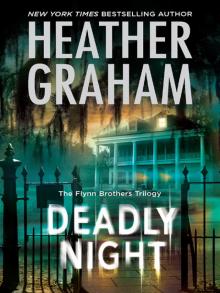 Deadly Night
Deadly Night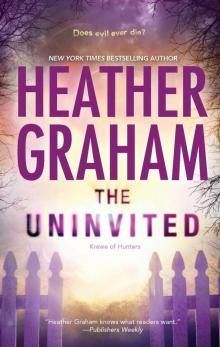 The Uninvited
The Uninvited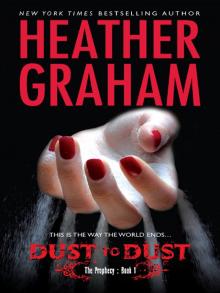 Dust to Dust
Dust to Dust Heart of Evil
Heart of Evil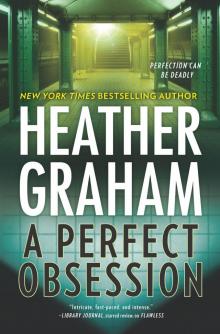 A Perfect Obsession
A Perfect Obsession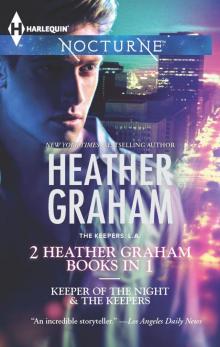 The Keepers
The Keepers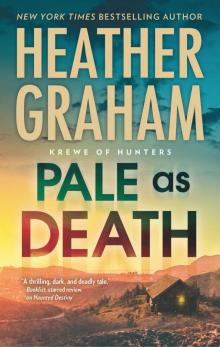 Pale as Death
Pale as Death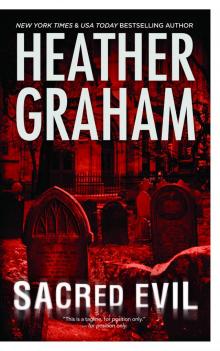 Phantom Evil
Phantom Evil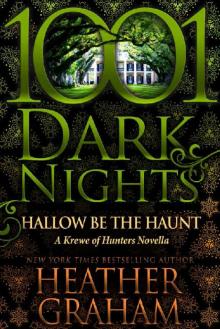 Hallow Be the Haunt
Hallow Be the Haunt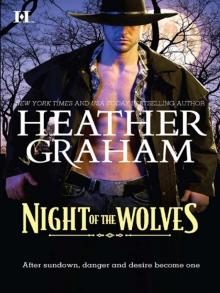 Night of the Wolves
Night of the Wolves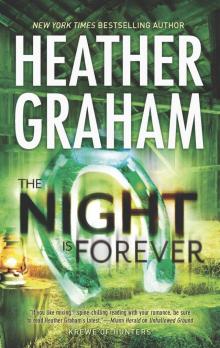 The Night Is Forever
The Night Is Forever Golden Surrender
Golden Surrender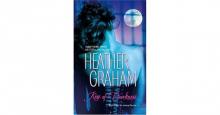 Kiss of Darkness
Kiss of Darkness Beneath a Blood Red Moon
Beneath a Blood Red Moon A Dangerous Game
A Dangerous Game Ghost Shadow
Ghost Shadow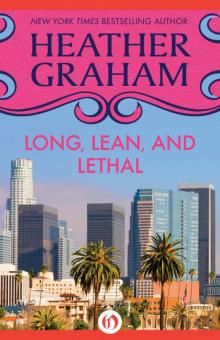 Long, Lean, and Lethal
Long, Lean, and Lethal Fade to Black
Fade to Black The Rising
The Rising And One Wore Gray
And One Wore Gray Rebel
Rebel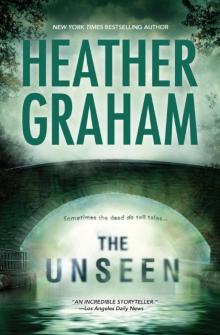 The Unseen
The Unseen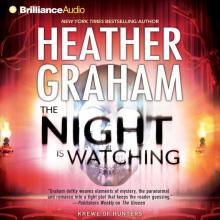 The Night Is Watching
The Night Is Watching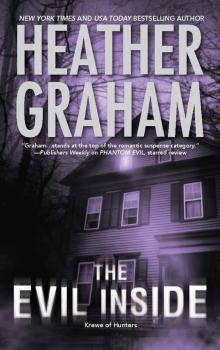 The Evil Inside
The Evil Inside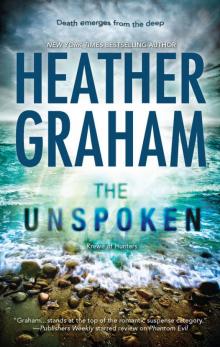 The Unspoken
The Unspoken The Night Is Alive
The Night Is Alive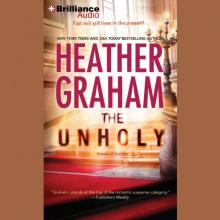 The Unholy
The Unholy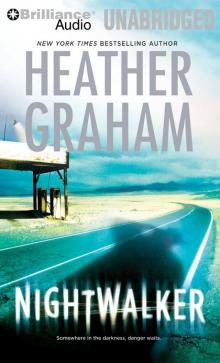 Nightwalker
Nightwalker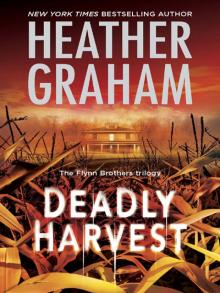 Deadly Harvest
Deadly Harvest An Angel for Christmas
An Angel for Christmas A Pirate's Pleasure
A Pirate's Pleasure American Drifter
American Drifter Realm of Shadows
Realm of Shadows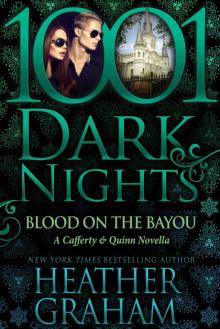 Blood on the Bayou
Blood on the Bayou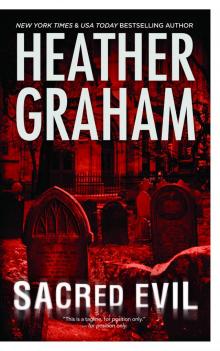 Sacred Evil
Sacred Evil Dying to Have Her
Dying to Have Her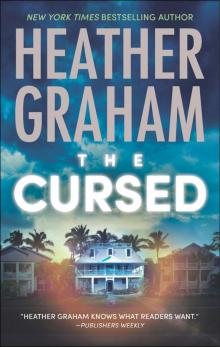 The Cursed
The Cursed Captive
Captive Hurricane Bay
Hurricane Bay Drop Dead Gorgeous
Drop Dead Gorgeous Ghost Memories
Ghost Memories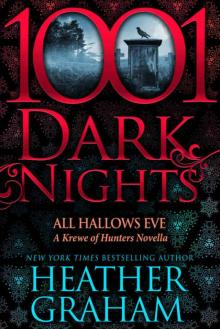 All Hallows Eve
All Hallows Eve Dying Breath
Dying Breath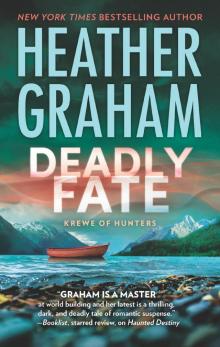 Deadly Fate
Deadly Fate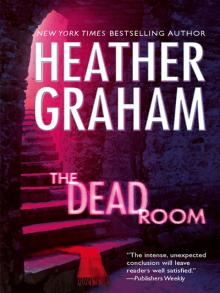 The Dead Room
The Dead Room Lord of the Wolves
Lord of the Wolves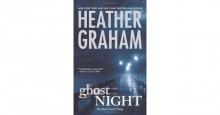 Ghost Night
Ghost Night Ghost Walk
Ghost Walk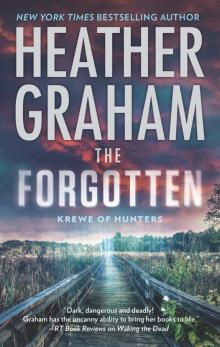 The Forgotten
The Forgotten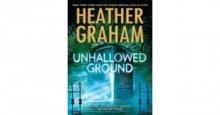 Unhallowed Ground
Unhallowed Ground One Wore Blue
One Wore Blue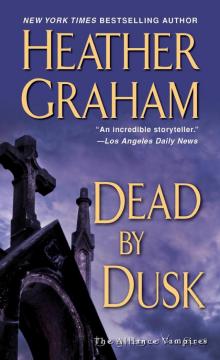 Dead By Dusk
Dead By Dusk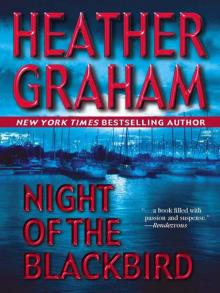 Night of the Blackbird
Night of the Blackbird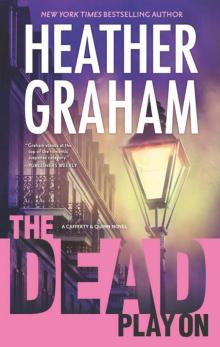 The Dead Play On
The Dead Play On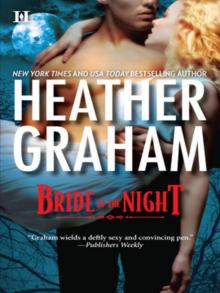 Bride of the Night
Bride of the Night Wicked Deeds
Wicked Deeds The Forbidden
The Forbidden Triumph
Triumph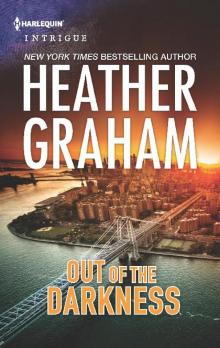 Out of the Darkness
Out of the Darkness Love Not a Rebel
Love Not a Rebel The Last Noel
The Last Noel Tall, Dark, and Deadly
Tall, Dark, and Deadly The Death Dealer
The Death Dealer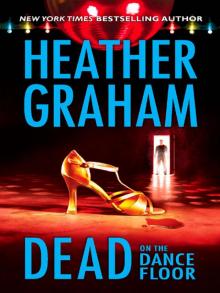 Dead on the Dance Floor
Dead on the Dance Floor Law and Disorder
Law and Disorder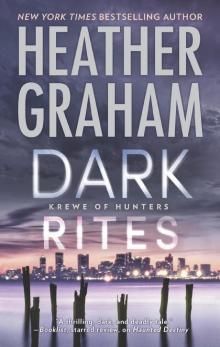 Dark Rites
Dark Rites New Year's Eve
New Year's Eve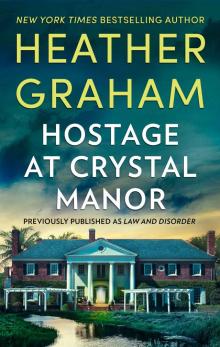 Hostage At Crystal Manor
Hostage At Crystal Manor And One Rode West
And One Rode West Home in Time for Christmas
Home in Time for Christmas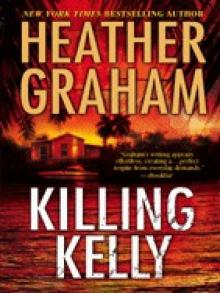 Killing Kelly
Killing Kelly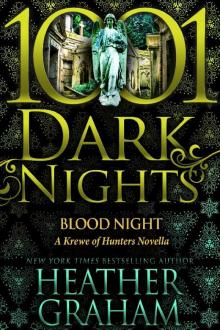 Blood Night
Blood Night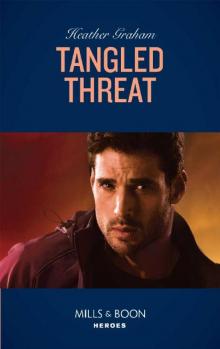 Tangled Threat (Mills & Boon Heroes)
Tangled Threat (Mills & Boon Heroes)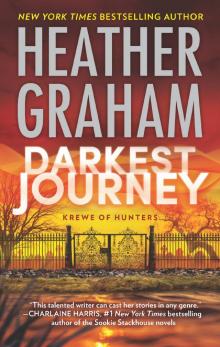 Darkest Journey
Darkest Journey Glory
Glory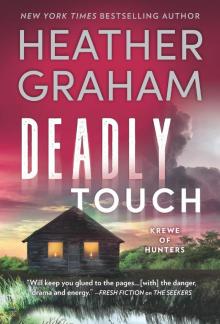 Deadly Touch
Deadly Touch An Unexpected Guest
An Unexpected Guest Night of the Vampires
Night of the Vampires Seize the Wind
Seize the Wind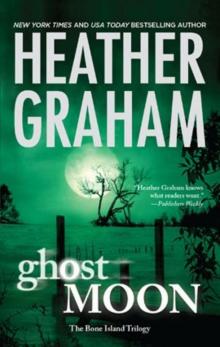 Ghost Moon
Ghost Moon The Vision
The Vision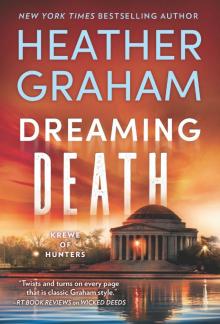 Dreaming Death
Dreaming Death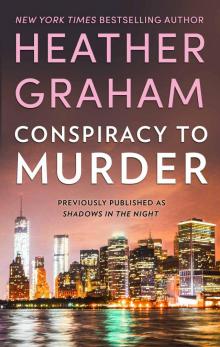 Conspiracy to Murder
Conspiracy to Murder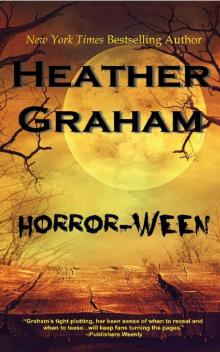 Horror-Ween (Krewe of Hunters)
Horror-Ween (Krewe of Hunters)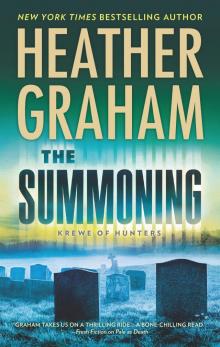 The Summoning
The Summoning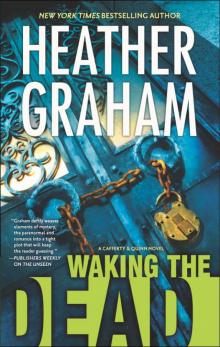 Waking the Dead
Waking the Dead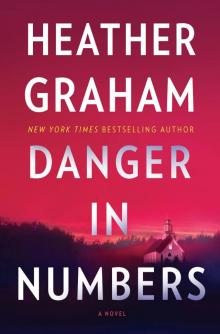 Danger in Numbers
Danger in Numbers The Hidden
The Hidden Sweet Savage Eden
Sweet Savage Eden Tangled Threat ; Suspicious
Tangled Threat ; Suspicious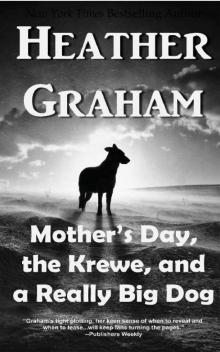 Mother's Day, the Krewe, and a Really Big Dog
Mother's Day, the Krewe, and a Really Big Dog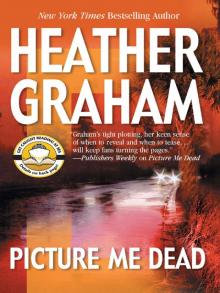 Picture Me Dead
Picture Me Dead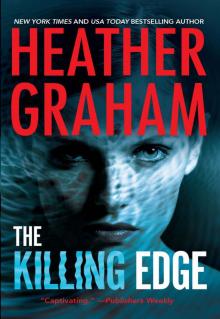 The Killing Edge
The Killing Edge St. Patrick's Day
St. Patrick's Day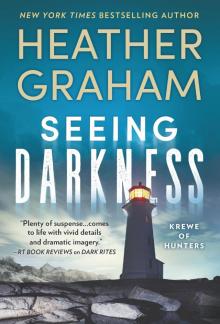 Seeing Darkness
Seeing Darkness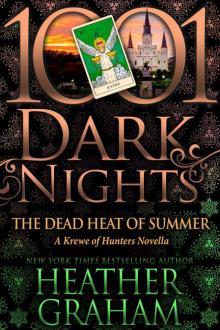 The Dead Heat of Summer: A Krewe of Hunters Novella
The Dead Heat of Summer: A Krewe of Hunters Novella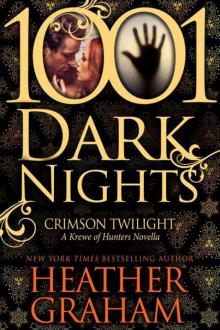 Crimson Twilight
Crimson Twilight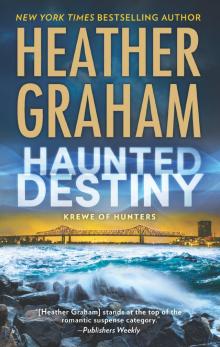 Haunted Destiny
Haunted Destiny Devil's Mistress
Devil's Mistress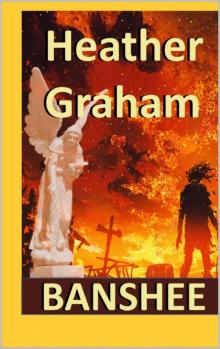 Banshee
Banshee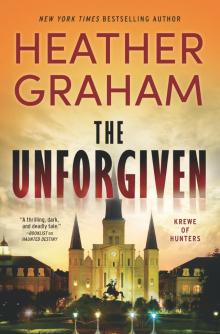 The Unforgiven
The Unforgiven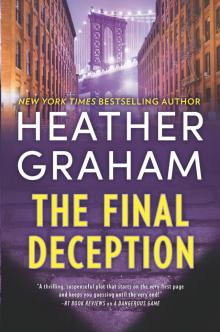 The Final Deception
The Final Deception A Horribly Haunted Halloween
A Horribly Haunted Halloween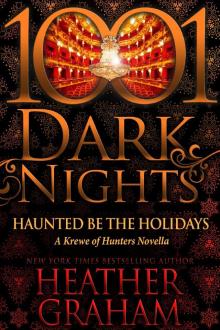 Haunted Be the Holidays
Haunted Be the Holidays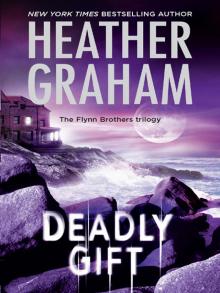 Deadly Gift
Deadly Gift Easter, the Krewe and Another Large White Rabbit
Easter, the Krewe and Another Large White Rabbit Haunted
Haunted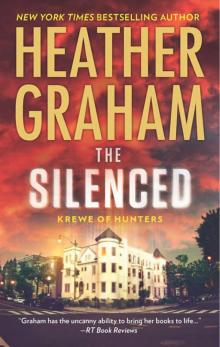 The Silenced
The Silenced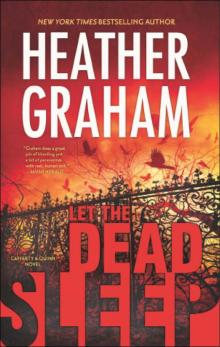 Let the Dead Sleep
Let the Dead Sleep Christmas, the Krewe, and Kenneth
Christmas, the Krewe, and Kenneth Big Easy Evil
Big Easy Evil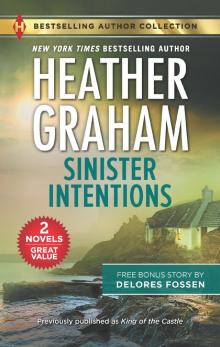 Sinister Intentions & Confiscated Conception
Sinister Intentions & Confiscated Conception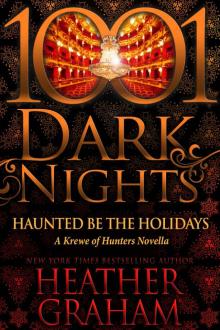 Haunted Be the Holidays: A Krewe of Hunters Novella
Haunted Be the Holidays: A Krewe of Hunters Novella Blood Red
Blood Red A Perilous Eden
A Perilous Eden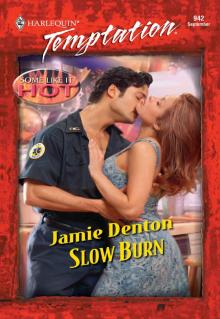 Slow Burn
Slow Burn Strangers In Paradise
Strangers In Paradise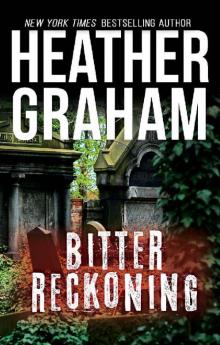 Bitter Reckoning
Bitter Reckoning Krewe of Hunters, Volume 1: Phantom Evil ; Heart of Evil ; Sacred Evil ; The Evil Inside
Krewe of Hunters, Volume 1: Phantom Evil ; Heart of Evil ; Sacred Evil ; The Evil Inside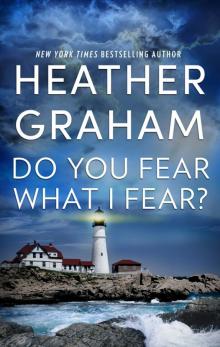 Do You Fear What I Fear?
Do You Fear What I Fear? The Face in the Window
The Face in the Window Krewe of Hunters, Volume 3: The Night Is WatchingThe Night Is AliveThe Night Is Forever
Krewe of Hunters, Volume 3: The Night Is WatchingThe Night Is AliveThe Night Is Forever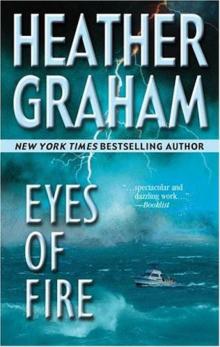 Eyes of Fire
Eyes of Fire Apache Summer sb-3
Apache Summer sb-3 Sensuous Angel
Sensuous Angel In the Dark
In the Dark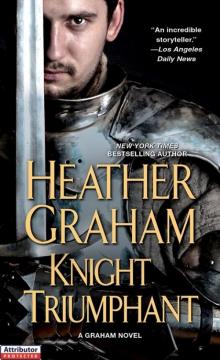 Knight Triumphant
Knight Triumphant Hours to Cherish
Hours to Cherish Tender Deception
Tender Deception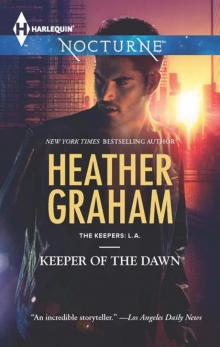 Keeper of the Dawn tkl-4
Keeper of the Dawn tkl-4 Apache Summer
Apache Summer Between Roc and a Hard Place
Between Roc and a Hard Place Echoes of Evil
Echoes of Evil The Game of Love
The Game of Love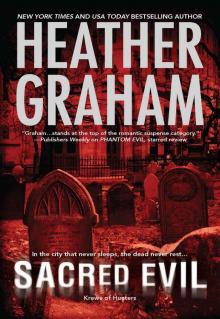 Sacred Evil (Krewe of Hunters)
Sacred Evil (Krewe of Hunters) Bougainvillea
Bougainvillea Tender Taming
Tender Taming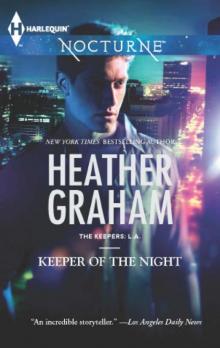 Keeper of the Night (The Keepers: L.A.)
Keeper of the Night (The Keepers: L.A.) Lonesome Rider and Wilde Imaginings
Lonesome Rider and Wilde Imaginings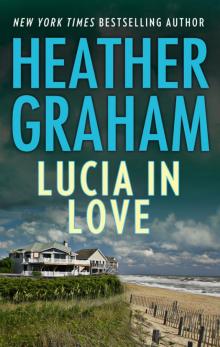 Lucia in Love
Lucia in Love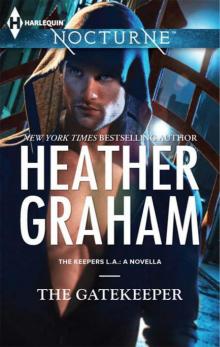 The Gatekeeper
The Gatekeeper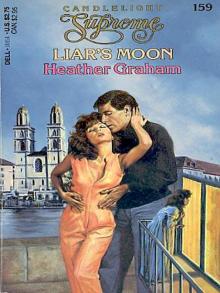 Liar's Moon
Liar's Moon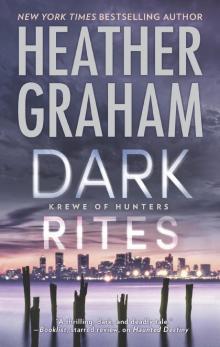 Dark Rites--A Paranormal Romance Novel
Dark Rites--A Paranormal Romance Novel A Season for Love
A Season for Love Krewe of Hunters, Volume 6: Haunted Destiny ; Deadly Fate ; Darkest Journey
Krewe of Hunters, Volume 6: Haunted Destiny ; Deadly Fate ; Darkest Journey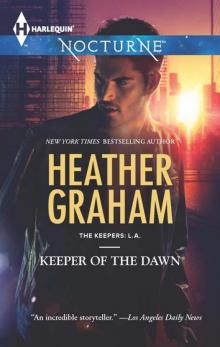 Keeper of the Dawn (The Keepers: L.A.)
Keeper of the Dawn (The Keepers: L.A.)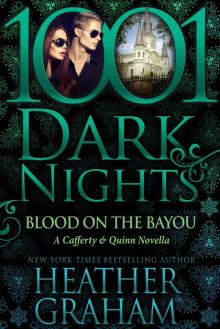 Blood on the Bayou: A Cafferty & Quinn Novella
Blood on the Bayou: A Cafferty & Quinn Novella Double Entendre
Double Entendre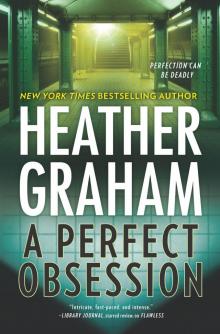 A Perfect Obsession--A Novel of Romantic Suspense
A Perfect Obsession--A Novel of Romantic Suspense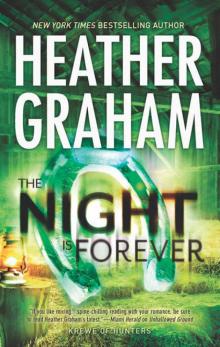 The Night Is Forever koh-11
The Night Is Forever koh-11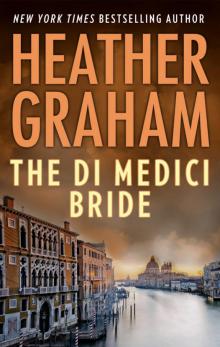 The Di Medici Bride
The Di Medici Bride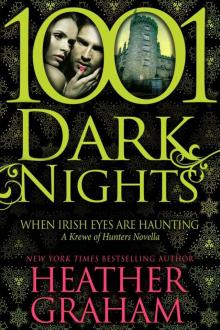 When Irish Eyes Are Haunting: A Krewe of Hunters Novella
When Irish Eyes Are Haunting: A Krewe of Hunters Novella The Keepers: Christmas in Salem: Do You Fear What I Fear?The Fright Before ChristmasUnholy NightStalking in a Winter Wonderland (Harlequin Nocturne)
The Keepers: Christmas in Salem: Do You Fear What I Fear?The Fright Before ChristmasUnholy NightStalking in a Winter Wonderland (Harlequin Nocturne)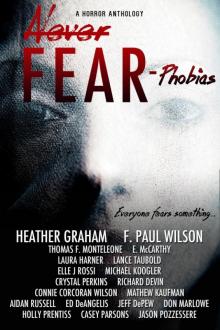 Never Fear
Never Fear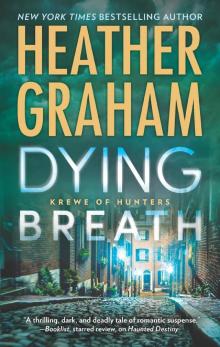 Dying Breath--A Heart-Stopping Novel of Paranormal Romantic Suspense
Dying Breath--A Heart-Stopping Novel of Paranormal Romantic Suspense If Looks Could Kill
If Looks Could Kill This Rough Magic
This Rough Magic Heather Graham's Christmas Treasures
Heather Graham's Christmas Treasures Hatfield and McCoy
Hatfield and McCoy The Trouble with Andrew
The Trouble with Andrew Never Fear - The Tarot: Do You Really Want To Know?
Never Fear - The Tarot: Do You Really Want To Know?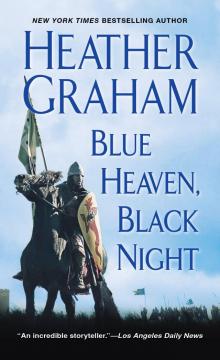 Blue Heaven, Black Night
Blue Heaven, Black Night Forbidden Fire
Forbidden Fire Come the Morning
Come the Morning Dark Stranger sb-4
Dark Stranger sb-4 Lie Down in Roses
Lie Down in Roses Red Midnight
Red Midnight Krewe of Hunters Series, Volume 5
Krewe of Hunters Series, Volume 5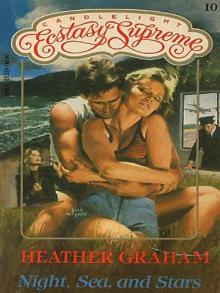 Night, Sea, And Stars
Night, Sea, And Stars Snowfire
Snowfire Quiet Walks the Tiger
Quiet Walks the Tiger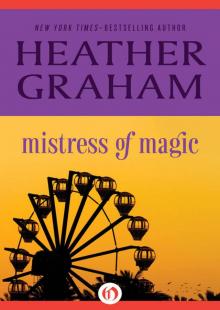 Mistress of Magic
Mistress of Magic For All of Her Life
For All of Her Life Runaway
Runaway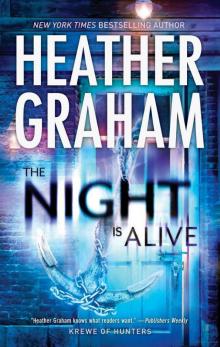 The Night Is Alive koh-10
The Night Is Alive koh-10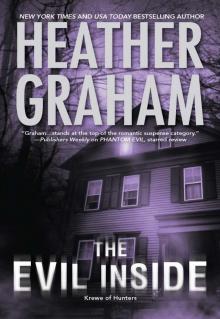 The Evil Inside (Krewe of Hunters)
The Evil Inside (Krewe of Hunters)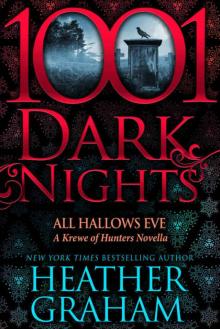 All Hallows Eve: A Krewe of Hunters Novella (1001 Dark Nights)
All Hallows Eve: A Krewe of Hunters Novella (1001 Dark Nights) Tomorrow the Glory
Tomorrow the Glory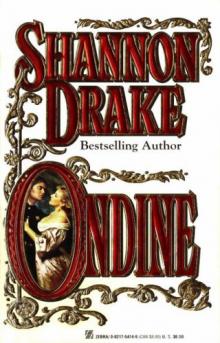 Ondine
Ondine Angel of Mercy & Standoff at Mustang Ridge
Angel of Mercy & Standoff at Mustang Ridge Bride of the Tiger
Bride of the Tiger When Next We Love
When Next We Love Heather Graham Krewe of Hunters Series, Volume 4
Heather Graham Krewe of Hunters Series, Volume 4 A Season of Miracles
A Season of Miracles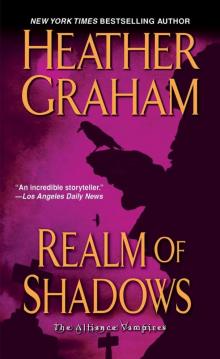 Realm of Shadows (Vampire Alliance)
Realm of Shadows (Vampire Alliance) When We Touch
When We Touch Serena's Magic
Serena's Magic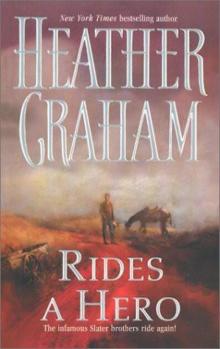 Rides a Hero sb-2
Rides a Hero sb-2 All in the Family
All in the Family Handful of Dreams
Handful of Dreams A Stranger in the Hamptons
A Stranger in the Hamptons Krewe of Hunters, Volume 2: The Unseen ; The Unholy ; The Unspoken ; The Uninvited
Krewe of Hunters, Volume 2: The Unseen ; The Unholy ; The Unspoken ; The Uninvited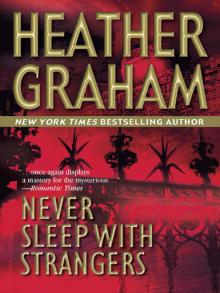 Never Sleep With Strangers
Never Sleep With Strangers Eden's Spell
Eden's Spell A Magical Christmas
A Magical Christmas Forever My Love
Forever My Love King of the Castle
King of the Castle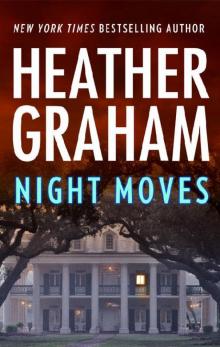 Night Moves (60th Anniversary)
Night Moves (60th Anniversary) The Island
The Island Borrowed Angel
Borrowed Angel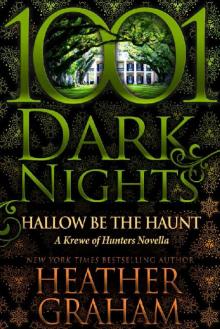 Hallow Be the Haunt: A Krewe of Hunters Novella
Hallow Be the Haunt: A Krewe of Hunters Novella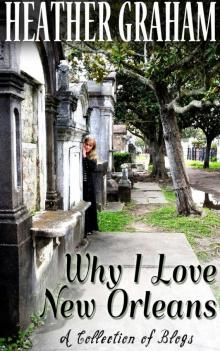 Why I Love New Orleans
Why I Love New Orleans The Last Cavalier
The Last Cavalier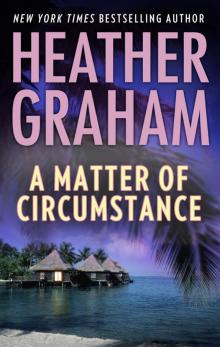 A Matter of Circumstance
A Matter of Circumstance Heather Graham's Haunted Treasures
Heather Graham's Haunted Treasures Tempestuous Eden
Tempestuous Eden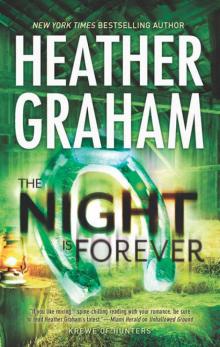 Krewe 11 - The Night Is Forever
Krewe 11 - The Night Is Forever